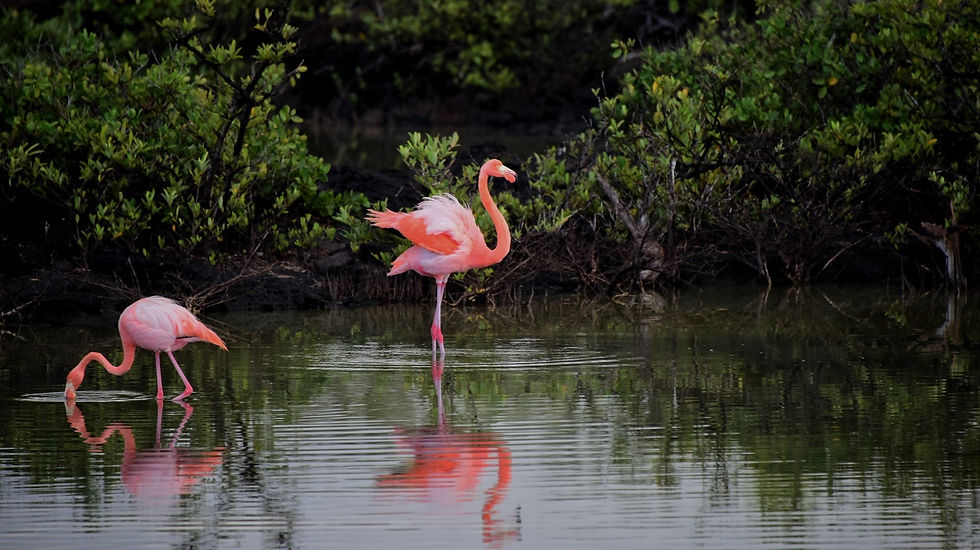Day Forty Three - Fascinated by flamingos
- Congregational Federation
- Mar 31, 2021
- 2 min read

Ever since I was a small child I have been fascinated by flamingos. Whenever we would visit Twycross Zoo, I would always ask to go to see them first – which was slightly unfortunate as their enclosure was probably the furthest away from the entrance and inevitably I would, quite rightly, be told to wait until we got round to see them! I was fascinated by their shape, their habits and, of course, their wonderful pink colour.
There are four flamingo species throughout the Americas, including the Caribbean, and two species native to Africa, Asia and Europe. There are also 10 species of now extinct flamingos – spanning the time back to around 5 million years ago.
The name flamingo comes from the Spanish or Portugeuse flemengo or “flame-coloured”. The different species of flamingo have different levels of “flameness” depending on the food they eat and the amount of carotenoids present in their diet – with American flamingos being a brighter red due to the availability of beta carotene in their food, whereas the lesser flamingos are a much paler pink due to ingesting a smaller amount of this pigment. Flamingos are very social birds living in large colonies which can number into the thousands. The numbers of flamingos is declining worldwide, with the species James flamingo and Chilean flamingo and lesser flamingo classed as near threatened, and one, Andean flamingos, already on the vulnerable list.
You might be wondering why I am giving you a natural history lesson on flamingos today – they may not be your favourite part of creation but I am sure we all have some creature in God’s world that we enjoy finding out about or seeing? Surely, our responsibility is to be good stewards of the world and not to put the rest of God’s creation in danger because of our actions? The demise in the numbers of flamingos is almost exclusively caused by human intervention – the destruction of habitats, collection of eggs, mining activities, poisons in the water, amongst other things have all contributed to the decline and are all actions made by humankind in the pursuit of their own ends.
Surely, instead of just taking more and more from the world around us, we can all work together to ensure that each one of our favourite creatures are still around in the future?
After all, as it says in Psalm 24 “The earth is the Lord’s, and everything in it. The world and all its people [creatures] belong to him. For he laid the earth’s foundation on the seas and built it on the ocean depths.”
Our responsibility is to care for what we have been entrusted with so that tomorrow there will be flamingos in our world, or orang-utans or elephants or tigers or...
Catherine Booton



Comments